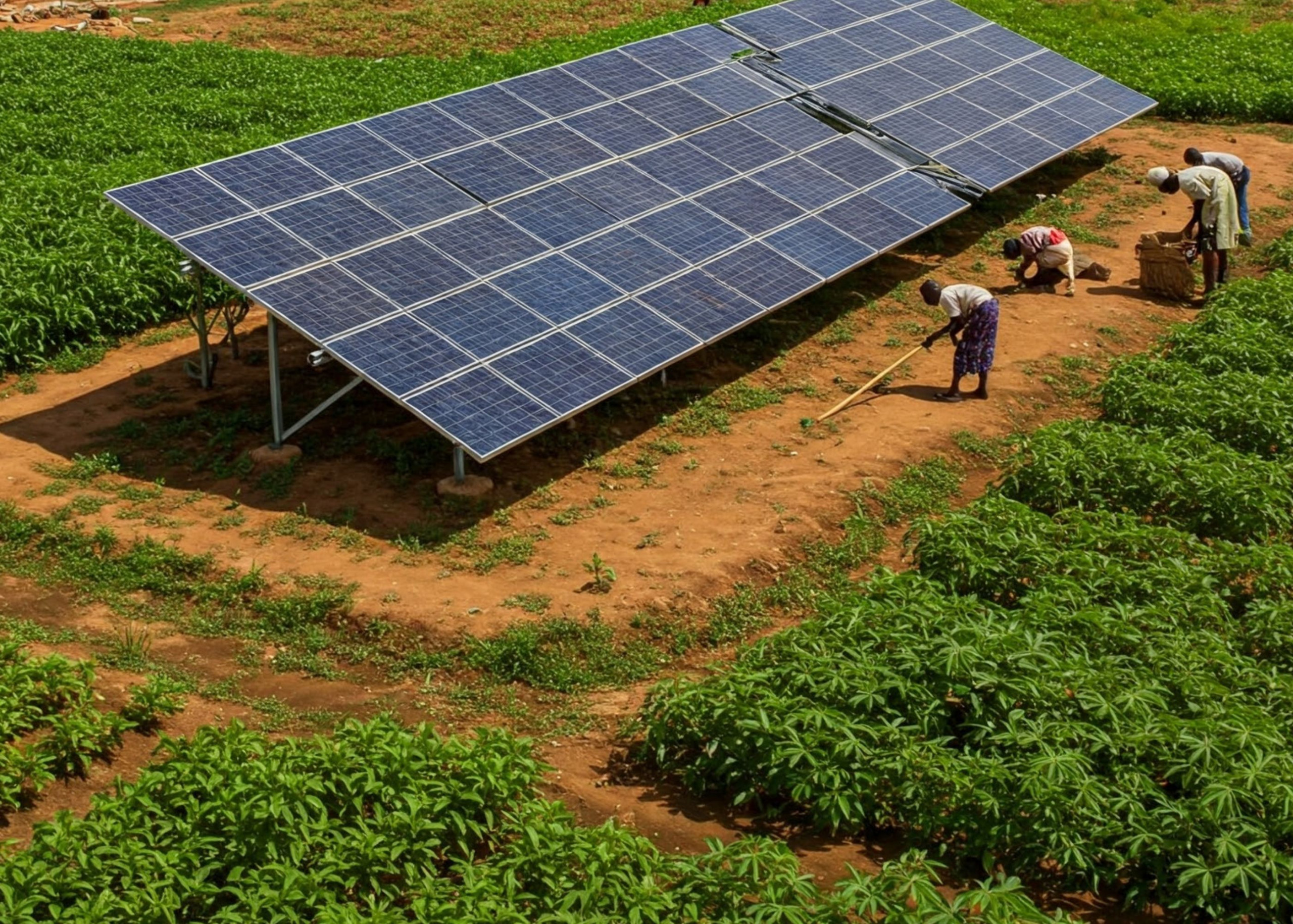News in brief:
– Olam Agri and Husk Power deployed a 1.3MWp hybrid solar system with battery storage at a rice farm in Nasarawa.
– The project aims to reduce diesel dependence, lower costs, and serve as a model for sustainable farming in Africa.
Olam Agri, in collaboration with renewable energy firm Husk Power Systems, has launched a 1.3 megawatt-peak (MWp) hybrid solar power system to support its rice farming operations in Rukubi, Nasarawa State. The solar setup is accompanied by an 860 kilowatt-hour battery storage unit, designed to deliver uninterrupted electricity to the farm’s rice mill and reduce reliance on diesel generators.
One of Nigeria’s largest solar power projects for agriculture
This initiative represents one of the largest solar power deployments in Nigeria’s agricultural sector. The new system will operate under a 10-year power purchase agreement, helping to stabilise energy supply, lower operating costs, and reduce the farm’s carbon footprint.
“Nigeria’s rice sector is extremely energy-intensive,” said Anil Nair, Country Head for Olam Agri in Nigeria. “This project is not just about saving costs—it’s a step toward aligning with national and global climate goals.”
It marks the country’s second solar initiative at the Rukubi facility, following a partial solar deployment in 2024.
Husk Power eyes industrial solar expansion
For Husk Power, the project signals growing momentum in Nigeria’s commercial and industrial (C&I) solar market. While the company has led Nigeria’s mini-grid space, it now aims to scale its impact across larger industrial operations.
“The C&I solar sector has the potential to transform energy access for key industries like agriculture,” said Olu Aruike, Husk’s Country Director. “We’re targeting hundreds of megawatts in solar installations across Nigeria over the next five years.”
Industry forecasts predict over 550MW of new C&I solar capacity to be installed in Nigeria between 2025 and 2029.
A boost to food security and farmer profits
Beyond the environmental benefits, stakeholders say the project could significantly improve food security and farmer livelihoods. Diesel generators, widely used due to Nigeria’s unreliable electricity grid, consume up to 40% of smallholder farmers’ profits, according to the World Bank. Switching to solar could help reduce post-harvest losses and improve processing efficiency.
“This isn’t just our project—it’s a test case for transforming African agriculture,” Nair added.
With over 60% of African farmland still dependent on rain-fed irrigation and fossil fuel-based energy, the Rukubi solar model may serve as a blueprint for sustainable agricultural power across the continent.



